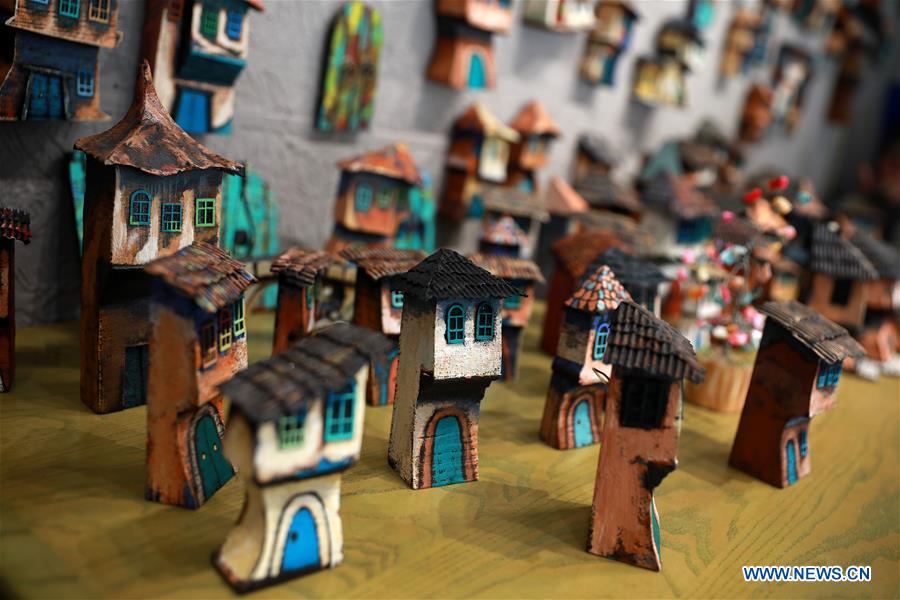
Photo taken on June 17, 2020 shows models of traditional Bosnian houses made by artist Muamer Mujcic in Sarajevo, Bosnia and Herzegovina (BiH). Running a small shop in a bazaar of about 600 years of history in Sarajevo, Muamer Mujcic has been dedicated to the preservation of traditional Bosnian architecture, or "fairy tale houses," by building models of them. (Photo by Nedim Grabovica/Xinhua)
SARAJEVO, June 20 (Xinhua) -- Running a small shop in a bazaar of about 600 years of history in Sarajevo, Muamer Mujcic has been dedicated to the preservation of traditional Bosnian architecture, or "fairy tale houses," by building models of them.
"I am not advocating that modern people should now build their homes in the same way the traditional Bosnian houses were made. That wouldn't be practical. I wouldn't do it myself. But we should be aware of the beauty and uniqueness of our traditional architecture and try to preserve some of it for future generations," said Mujcic, who is self-taught.
His shop is filled with small models of these "fairy tale" houses, unique in shape and honoring the traditional style.
The traditional esthetic of the Bosnian houses that developed throughout the centuries was strongly influenced by the Ottoman Empire and the Austro-Hungarian Empire. The old ways of building homes were widely replaced due to the use of modern materials and designs after World War II and traditional houses have become a curiosity even to locals.
Smaller than the size of today's house, the traditional Bosnian house is usually a two-floor building with the ground floor being made of stone. The upper floor is usually a wood-beam skeleton covered with sun-dried bricks made of clay and a straw mixture. The roofs have four symmetric sides and are covered with wood stripes. The residence is upstairs while the ground floor is reserved for the pantry and for business. The two floors are connected by narrow wooden stairs.
Traditional houses are surrounded by wooden fences or stone walls for privacy, and the exterior features a combination of a green garden and a paved courtyard.
Mujcic said he is passionate about traditional Bosnian architecture. For him, it was initially a hobby and he never tried to build a real house but preferred his fairy tale-like and colorful interpretation of the culture as showcased in his models.
After learning metal-processing crafts in school at the suggestion of his parents, Mujcic spent more than a decade as a professional musician, playing string instruments in different orchestras as well as in small bands. He has played both traditional and modern music in concerts, clubs and restaurants.
"As a musician I had plenty of free time in the afternoon and I started building models of traditional Bosnian houses," said Mujcic. As time went by, his modeling and painting skills gradually improved and his hobby became a profession.
"Other cultures did a great job of preserving their architectural heritage. I saw some great examples in Spain. I think we should do our best to present the traditional Bosnian house not only to tourists, but to future generations," said Mujcic.
He summed up his inspiration on a note card which reads: "These silent witnesses of the past and the way of life of our ancestors, lonely and sad, seem to want to tell a forgotten and mysterious story of ancient times when life blossomed in its walls."